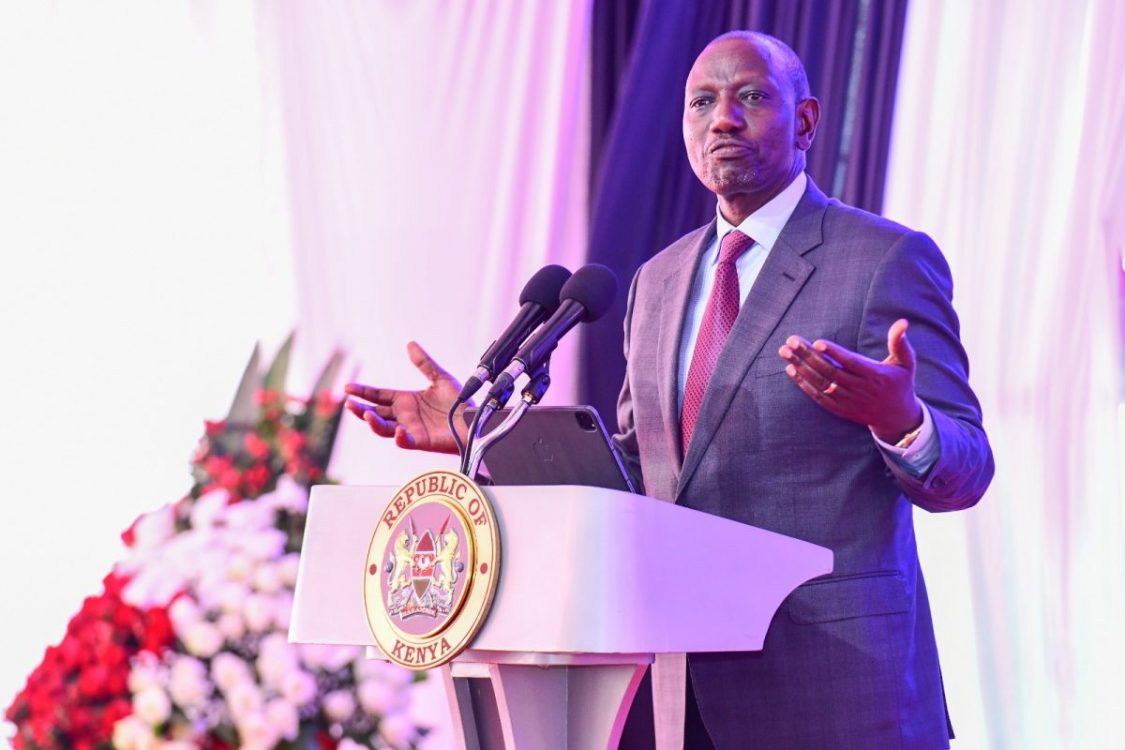Politics of rancour, anger won’t take Kenya anywhere

On Monday, the country witnessed yet another tiff between the State and Opposition. Violence was still reported in some parts while top opposition leadership that coalesces under the Azimio la Umoja umbrella was blocked from presenting their petition to five public offices.
That was the fourth round of protests organised by the opposition which did not end entirely peacefully. After being frustrated by State machinery, Azimio chiefs announced they would again attempt to take their grievances to the offices today.
However, they indefinitely postponed the planned demo last evening and had they not, the government response was very predictable—it would have certainly blocked the Azimio group from achieving their goals. The circus would have continued amid the tension and violence that have intermittently gripped the nation since the first demonstrations on March 20.
Though it is not clear who made the first move, last month, through some subtle behind-the-scenes manouvres, the opposition and government reached out to each other and agreed on how to address issues that have elicited so much friction between them. Unfortunately, their efforts have remained a still-birth.
Whereas the two sides agreed on formation of a bipartisan parliamentary panel to look into the sticking issues that cause the huge divide, it is clear none of them is interested in the talks as they each have come with hostile conditions that render the exercise a total waste of time.
If anything, communication between the government and the opposition has been reduced into a verbal correspondence driven by dishonesty and highly laced with rancour, anger, disrespect and hubris. In fact, it is quite clear to the public ear the two antagonists are comfortable with continued supremacy battles and chest-thumping rather than being concerned with the matters they claim they are.
What was supposed to be a conversation to address the high cost of living and electoral reforms has been transformed into a platform for ethnic hatred, breach of law and regional profiling. To most Kenyans, issue of outcome of the August election is behind them and would be waiting for another one in 2027. That, however, does not mean they are all satisfied with those results and therefore have no grievances. They must be allowed to raise the concerns to whomsoever they wish within the laws established.
However, the economic, social, political, legal, administrative and other challenges facing the country are not merely a matter that should be narrowed to the existing anger and rancour between President William Ruto and former Prime Minister Raila Odinga. They involve every Kenyan and not the two individuals.
Notably, more than eight million registered voters did not participate in the August election. That number is higher than the votes Ruto and Raila got, each, in the election. That means there are eight million voters who do not believe in the leadership of the two, and therefore they do not necessarily speak for them, politically. There is also an estimated five million Kenyans who are eligible to vote but did not register as voters. They, too, have own reasons for not taking part in the polls. Out there are 13 million eligible voters who do not subscribe to the politics of the two leaders. It, therefore, goes without saying both Ruto and Raila have to start listening to other voices.
Yesterday, the Council of Governors appointed a committee to arbitrate the warring parties. That is a right decision. But there are other entities who, too, want to have a say. Sections of the religious community have expressed a similar desire. Trade unions and other outfits like the Law Society of Kenya and the civil society have always had something to contribute to the national debate. There is need to open space for the dialogue. However, that space should not be limited to the persons and political interests of Ruto and Raila as has become apparent.
—The author is the Revise Editor with the People Daily — kwayeram@yahoo.co.uk











